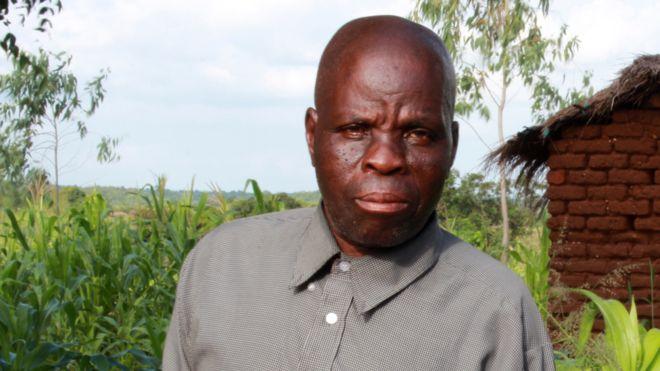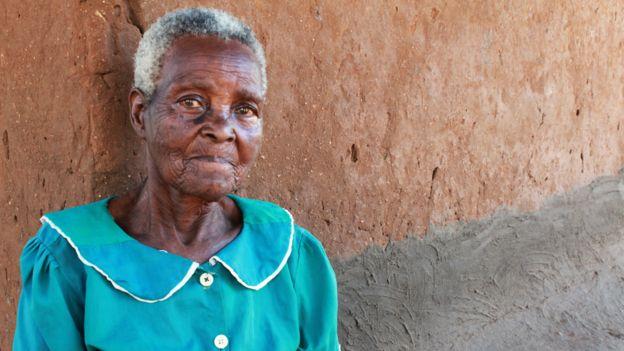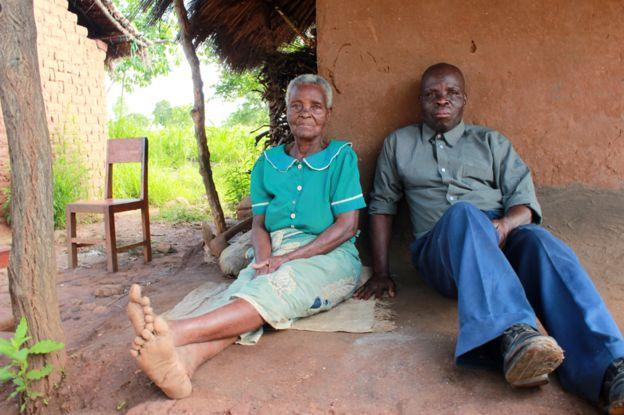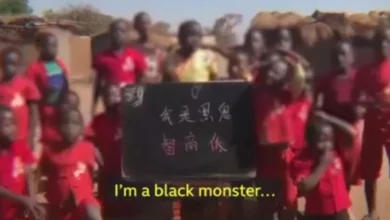The executioner was too tired to execute me 3 times – Byson Kaula says

It may be called a small miracle that Byson Kaula still lives today. The man from Malawi was sentenced to death but escaped his execution three times. Every time the executioner stopped before he had finished his complete list. And then Malawi decided not to carry out the death penalty anymore. Byson, now a sixties, also survived two suicide attempts and was even released from the prison.
Byson Kaula grew up in a village in the south of Malawi. He went to Johannesburg in South Africa to earn money in the gas industry. Back in his own country, he bought land with the money, on which he grew fruit, wheat, maize, and manioc. He employed five people. “Then the misery started,” Byson says to the BBC. According to him, they were jealous neighbors who in 1992 caused him to be found guilty of murder. There was then inevitably the death penalty.
A few neighbors had severely knocked someone from Byson’s personnel. The victim could no longer step independently and Byson helped him to the toilet. But Byson, a forty-year-old, let him fall from the slippery stairs – It had rained. The employee later died in the hospital and Byson Kaula was charged with murder. His neighbors testified to him on the trial and the verdict was: guilty.
Only non-executed
Byson still remembers waiting for his execution: “It felt like I was already dead.” At that time there was only one executioner, a South African, who traveled from country to country in the region to hang people. When Malawi was once again – every few months – some prisoners on the death cell knew what time it was. One day Byson Kaula also heard that his time had come. He would be hanged together with twenty others. The executions began at 1 pm. The executioner went on until 3 pm and then gave it to him. Three inmates remained, including Byson Kaula. They had to wait for the executioner to call on Malawi again.
That scenario was repeated twice. There was a list of deathly convicts who had to be executed by the executioner, but he never came to the end. Byson Kaula was always with the survivors and thus a survivor. The third time he was even the only one who was not executed. An unlikely lucky bird, you might think, but the whole experience took its toll at Byson. The man undertook two suicide attempts. He also survived that. Byson Kaula is now in his sixth life.
In 1994 the dictatorial reign of President Hastings Banda took place after 28 years for a democratic regime. Until today, the death penalty still exists in Malawi, but it has not been implemented for 25 years.
Over time, Byson Kaula was no longer on death row but in the main building of Zomba Central Prison. He followed courses there and also taught himself. He did not hope to ever be released. Until a precedent emerged in 2007. Byson had been stuck for 23 years. A drug user who killed his stepson argued that he was insensible and filed a complaint against the inevitable death penalty for murder. The man was right. Consequence: the compulsory death penalty had to be reviewed.
Of the 170 prisoners who were eligible for a revision of their death sentence, 139 were released. Byson’s lawyers also wanted to get him back to court, but the convict refused initially. He had not forgotten his first experience with the dish. In the end, he admitted. The judge released him with immediate effect, much to the surprise of Byson himself. “The guards said that I could get out of the dock, but I did not get it right,” Byson Kaula testifies. “I was completely trembling, my body was so weak … I thought I was dreaming. I could not believe what the judge had said.”
Hopping around like a lamb
Byson’s mother Lucy visited her son every year. She saved the proceeds from her work at the cotton farm for a year to find Byson in prison with as many provisions as possible. When she received the liberating call from her younger son, she could not believe it at first. Then, she claims, “she hopped about like a young lamb.”

Byson ended up in a counseling center, the oldest ever there. He now works as a volunteer and advises other former prisoners. His own farm is completely haggard. His wife died when he was still in the cell. His six children have built their own lives. Byson Kaula lives alone and takes care of his mother, who is in the 80s. He even wants to build a new house for her.





